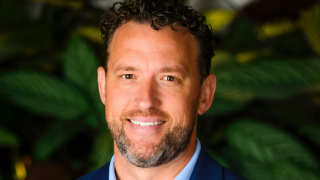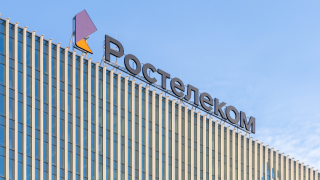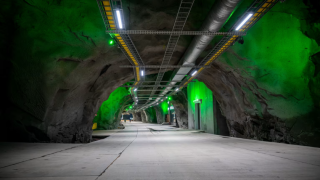Speaking at the 20th Capacity Middle East conference in Dubai, Obaid Rahman, head of international wholesale at du said: “Over the next 18 months we will see the Middle East emerge as a next-generation global hub for AI and hyperscalers.
"There will be hyper decentralisation driven by AI extreme demands for inexpensive energy the availability of high-performance digital infrastructure and pro-business and pro AI regulatory.”
Meanwhile, Mohammed Al Abbadi, group chief carrier and wholesale officer at stc agreed, claiming that over the next 18 months, the Middle East is expected to emerge as the next-gen global hub for AI and digital transformation.
Subscribe today for free
The importance of low latency
One of the core elements of the Middle East’s digital evolution is the shift towards low-latency connectivity.
To ensure AI can function optimally, regions globally are working to build ultra-low-latency routes between data centres and service providers.
For the Middle East, this means ensuring a high-quality digital infrastructure with minimal latency.
Nabil Baccouche, group chief carrier and wholesale officer at e&, pointed out that 20 years ago when Capacity Europe first launched, AI would have been something you would see in the movies.
Fast forward to now, it’s a reality where even 65 milliseconds won’t be enough.
Panel chair Sam Evans, senior MD of FTI DELTA took the question of what would be considered optimal to Anis Bennani, director of EMEA network acquisition at Microsoft.
Bennani commented that "good is a moving target" as it depends on the customer's requirement - the playbook for the requirement keeps moving.”
Subsea cable challenges
Baccouche also highlighted that an immediate challenge to meeting the demand for low-latency connectivity is the shortage in subsea cable manufacturing.
Supply chain issues in the cable manufacturing industry have raised concerns.
The demand for subsea cables has surged, driven by an increase in cloud services, AI development, and digital transformation projects across various sectors, but manufacturing capacity has struggled to keep up.
Baccouche believes that satellites should not be disregarded as an option.
He said: “Around a third of the planet is not connected, it is our duty — especially as a group of leaders who operate in multiple geographies, to see how we can connect the population.”
A new era of cooperation
One of the key topics of the panel was partnership. Veer Passi, group CEO of Kalaam Carrier Solutions highlighted that as the Middle East aims to become a global leader in AI and digital transformation, partnerships between telecom operators, hyperscalers, governments, and regulators will be essential.
He stated: “We collaborate closely but must do more. Collaborate must be seamless — we need more carrier neutrality at datacentre and cloud level.”
The region has already seen a number of successful collaborations, such as the launch of Africa One, a subsea cable consortium aimed at connecting the Middle East to Africa and Europe.
"Initiatives like these are expected to expand rapidly in the coming years, diversifying international routes and boosting the region’s digital infrastructure," Al Abbadi said. "We are working with hyperscalers, SaaS operators and enterprises to create a value chain to ensure the customer’s experience is at the forefront.”
Sohail Qadir, CEO of ZOI agreed, saying: “We are collaborating with each other. We just have to be and this is my personal point of view, not as a company, but I think personally, I would say that all of us as a leader in this industry, don't need to compete with each other, we need to partner with each other, and we need to try to keep the prices at a level where it makes sense for us to reinvest this community.
“Because what can happen is that we can start killing each other by lowering the prices, and then eventually none of us will be able to invest after five years. So I think this is one of the messages - we need to work together to see that we don't destroy our money.”
Governmental support
The PFI has been quite active in investing in digital infrastructure and the panel agreed that governmental support is crucial if the Middle East wants to be one of the key players.
Baccouche said: “We have strong leaders. Countries like UAE, Saudi and the whole GCC want us to deliver the best infrastructure. Invest in more diversification, data centres and subsea cables.
"It keeps us on our toes and keeps us moving forward. There’s a strong appetite for investment, capital is available. We must play a role, not just in the region but globally.
“We need to work hand in hand to make sure that whatever Microsoft, and Google request we are here to support them with the right level of infrastructure and I think the UAE and our neighbouring countries are extremely well placed to deliver," Baccouche concluded.
RELATED STORIES
Capacity Middle East at 20: Two decades of shaping global connectivity






